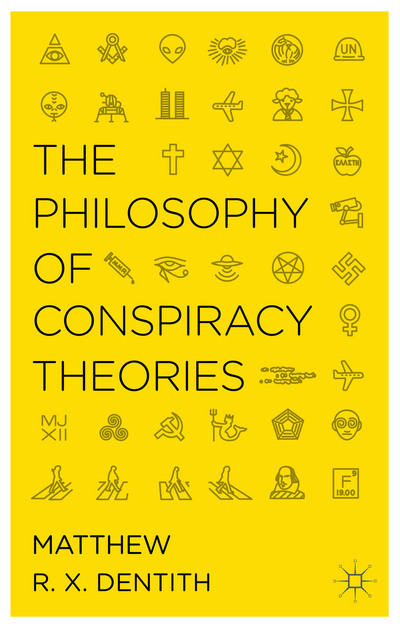The Philosophy of Conspiracy Theories: Concepts, Methods and Theory (Routledge, 2024)
It features a critical history of conspiracy theory theory, emphasising the role of the ‘first generation’ of philosophers in conspiracy theory research. This book also includes discussions of a range of key issues such as:
- What counts as conspiracy theory?
- Who counts as a conspiracy theorist?
- How are these terms variously understood by academics and the wider public, and
- Are conspiracy theories automatically suspect, and is it ever reasonable to be a conspiracy theorist?
The book then builds upon that work by looking at how people’s political views affect both the conspiracy theories they believe and their beliefs about conspiracy theories; how we might defend conspiracy theorising without endorsing mad, bad or dangerous conspiracy theories; and contains several proposals for unifying conspiracy theory research under one theoretical framework: particularism.
This volume will be a key resource for philosophers and social scientists interested in recent work on the philosophy of conspiracy theory theory and its implications for conspiracy theory research. It will also appeal to members of the public, who want to know what, if anything, is wrong with these things called “conspiracy theories”. It was originally published as a special issue of Social Epistemology.
Taking Conspiracy Theories Seriously (Rowman and Littlefield, 2018)
Featuring new and original work by Charles Pigden, David Coady, Ginna Husting, Kurtis Hagen, Lee Basham, M R. X. Dentith, Marius Raab, and Martin Orr.
The contributors to this volume argue that whilst there is a commonplace superstition conspiracy theories are examples of bad beliefs (and that the kind of people who believe conspiracy theories are typically irrational), many conspiracy theories are rational to believe: the members of the Dewey Commission were right to say that the Moscow Trials of the 1930s were a sham; Woodward and Bernstein were correct to think that Nixon was complicit in the conspiracy to deny any wrongdoing in the Watergate Hotel break in; and if we either accept the terrorist events of 9/11 were committed by Al-Qaeda, or that the Bush Administration was responsible, then it seems we are endorsing some theory about a conspiracy to commit an act of terror on American soil. As such, there is no reason to reject conspiracy theories sui generis. This volume challenges the prima facie that conspiracy theories are irrational beliefs, arguing that we should treat conspiracy theories and the phenomena of conspiracy theories seriously. It presents fresh perspectives from the wider philosophical, sociological and psychological community on what is becoming an issue of increasing relevance in our time.
It is available from the publisher, and Amazon.

The Philosophy of Conspiracy Theories (Palgrave Macmillan, 2014)
Conspiracy theories are a popular topic of conversation in everyday life but are often frowned upon when it comes to academic discussions. Looking at the recent spate of philosophical interest in conspiracy theories, The Philosophy of Conspiracy Theories asks whether the assumption that belief in conspiracy theories is typically irrational is well founded.
The Philosophy of Conspiracy Theories (Palgrave Macmillan) is aimed at both the philosopher and the non-philosopher. The book is a qualified defence of belief in conspiracy theories, presenting the argument that belief in particular conspiracy theories can be rational. It covers such issues as: who might be consider a qualified conspiracy theorist; how do we analyse claims of disinformation; is our reliance on official theories a good reason to be suspicious of rival conspiracy theories; and what we should do when official theories and conspiracy theories are in conflict?
The Philosophy of Conspiracy Theories can be purchased via either the Book Depository or Amazon (a Kindle version is also available) or directly from the publisher.

